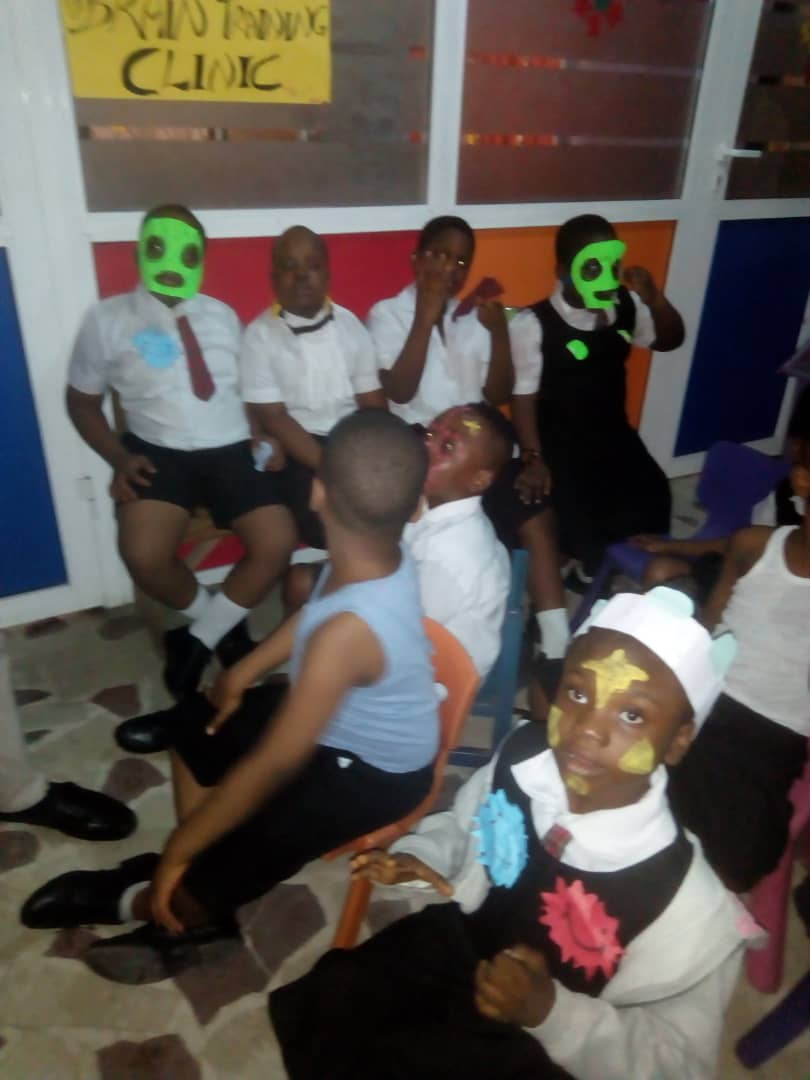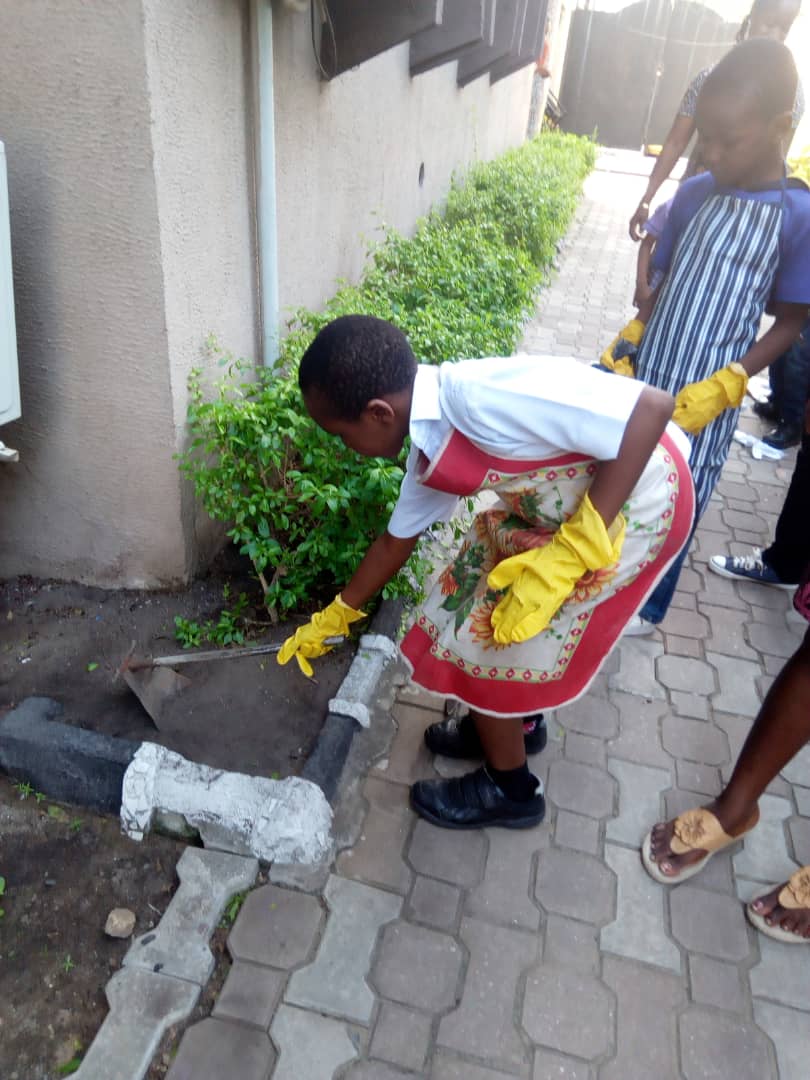
World Children’s Day Celebration Activities
May 28, 2019
Caring for our Environment
June 7, 2019OVERCOMING STUTTERING
Everybody has trouble speaking from time to time. We’ve all filled sentences with “um” or “uh” or stumbled through a nerve-wracking speech. But when a child has a stuttering p

African American mother talking to her daughter.
roblem, words can be a daily struggle. Stuttering affects about 5 to 10 percent of all children at some point, most often occurring usually starts between the ages of 2 and 5, during this age, the child is in the midst of a major leap in language skills, it is natural that a child may have difficulty with fluency because speech and language, thinking, and motor skills are still developing but it can arise anytime before the teenage years.
Most children won’t continue to stutter in adulthood. Typically, as your child’s development progresses, the stuttering will stop. Early intervention can also help prevent stuttering in adulthood, Although most children outgrow stuttering, studies has it that, up to 25 percent of children who don’t
recover from stuttering will continue to stutter as adults.
Stuttering is a speech disorder in which sounds, syllables, or words are repeated or prolonged, disrupting the normal flow of speech. These speech disruptions may be accompanied struggling behaviors, such as rapid eye blinks or tremors of the lips. Stuttering can make it communicate with other
people, which often affects a person’s quality of life and self esteem Symptoms of stuttering can vary significantly throughout a person’s day. In general, speaking before a group or talking on the telephone may make a person’s stuttering more severe, while singing, reading, or speaking in unison may temporarily reduce stuttering. Stuttering is sometimes referred to as stammering and by a broader term, disfluent speech.
Experts are not completely sure what causes stuttering but findings show that somebody with stutter is much more likely to have a close family member who also has one, compared with other people. There are two types of stuttering that are more common. (A third type of stuttering, called psychogenic stuttering, can be caused by emotional trauma or problems with thought or reasoning. At one time, all stuttering was believed to be psychogenic, but today we know that psychogenic stuttering is rare.), Neurogenic stuttering may occur after a stroke, head trauma, or other type of brain injury. With neurogenic stuttering, the brain has difficulty coordinating the different components involved in speaking because of signaling problems between the brain and nerves or muscles and developmental stuttering occurs in young children while they are still learning speech and language skills. It is the most common form of stuttering. Our speech language pathologist at Helping hands therapy believes that developmental stuttering occurs when children’s speech and language abilities are unable to meet the child’s verbal demands.
Stuttering is characterized by repeated words, sounds, or syllables and disruptions in the normal rate of speech. For example, a person may repeat the same consonant, like “K,” “G,” or “T.” They may have difficulty uttering certain sounds or starting a sentence. The stress caused by stuttering may show up in the following symptoms:
•physical changes like facial tics, lip tremors, excessive eye blinking, and tension in the face and upper body
•Frustration when attempting to communicate
• Hesitation or pausing before starting to speak
refusal to speak
•Interjections of extra sounds or words into sentences, such as “uh” or “um”
• Repetition of words or phrases
•Tension in the voice
•Rearrangement of words in a sentence
•Making long sounds with words, such as “My name is Ahmmmmmmmed”
Some children may not be aware that they stutter, social settings and high-stress environments can increase the likelihood that a person will stutter. Public speaking can be challenging for those who stutter.
A speech language pathologist can help diagnose stuttering. No invasive testing is necessary, typically, you or your child can describe stuttering symptoms, and a speech language pathologist can evaluate the degree to which you or your child stutters.
Not all children who stutter will require treatment because developmental stuttering usually resolves with time. Speech therapy is an option for some children. Speech therapy can reduce interruptions in speech and improve your child’s self-esteem. Therapy often focuses on controlling speech patterns by encouraging your child to monitor their rate of speech, breath support, and laryngeal tension. The best candidates for speech therapy include those who: have stuttered for three to six months, have pronounced stuttering, struggle with stuttering or experience emotional difficulties because of stuttering, have a family history of stuttering
Parents can also use therapeutic techniques to help their child feel less self-conscious about stuttering. Listening patiently is important, as is setting aside the time for talking, others include:
•Try to speak slowly and calmly to your stuttering child. Encourage the other adults in your child’s life to do the same.
•Try to maintain a calm, quiet atmosphere at home.
•Pay attention to what your child is saying, not the way he is saying it. This will require you to slow down and pay attention. Don’t show impatience or irritation when your child is talking to you.
•Avoid corrections or criticisms such as “slow down,” “take your time,” or “Can you say that clearly?.” These comments, however well-intentioned, will only make your child feel
Electronic devices may be used to treat stuttering. One type encourages children to speak more slowly by playing back an altered recording of their voice when they speak quickly. Other devices are worn, like hearing aids, and they can create distracting background noise that’s known to help reduce stuttering. There are no medications that have yet been proven to reduce stuttering episodes, but the most effective treatment includes, early intervention( waiting is the worst approach), a speech language pathologist and cognitive behavioral therapist will help your child overcome stuttering in no time.nike foamposite 2000 black women shoes heels – Blanco – 991 – DJ3180 – Nike Air Max 97 By You Zapatillas personalizables | New Balance 990v3 (Infant/Toddler) – IC990GY3 – IetpShops

